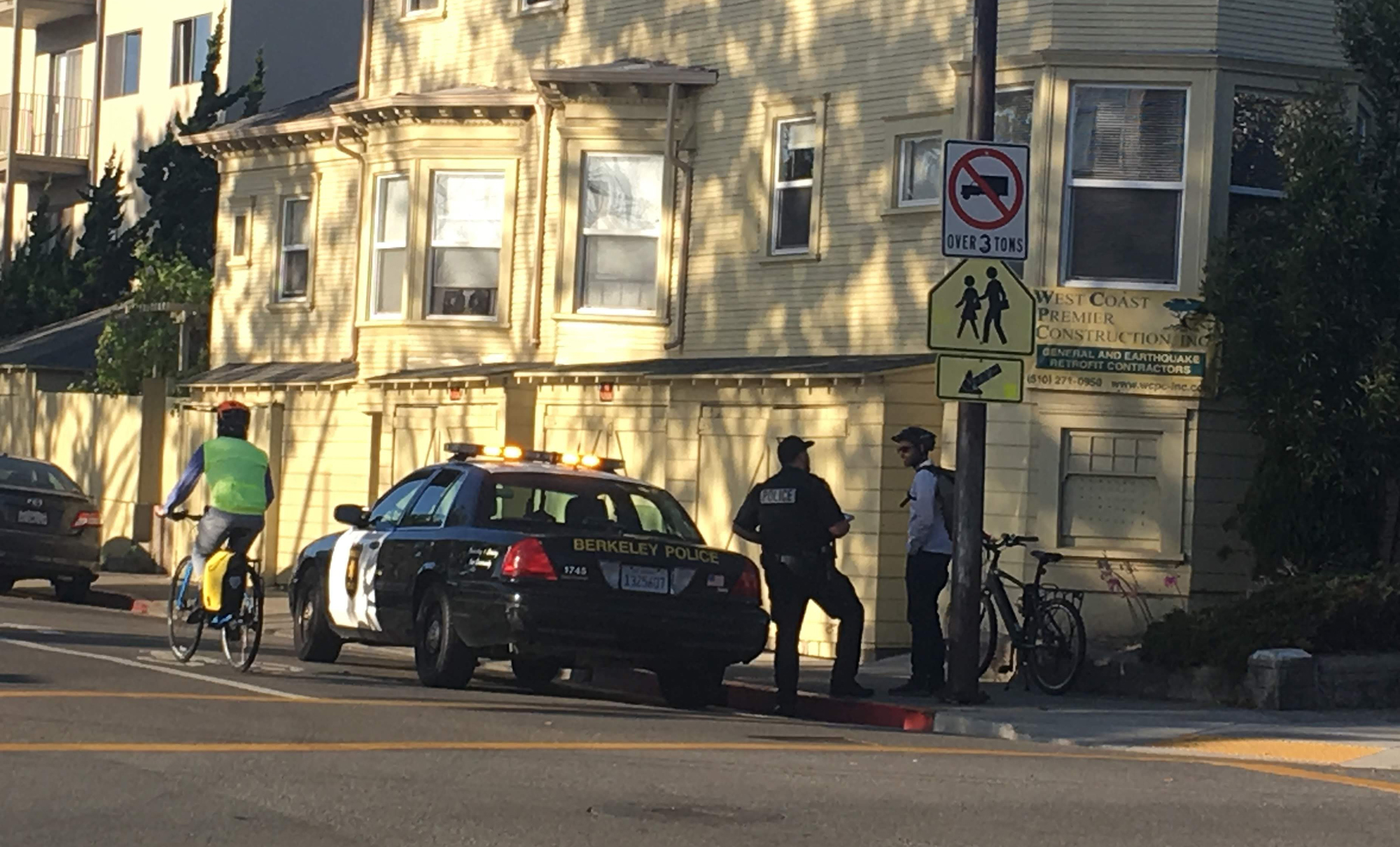The City of Berkeley is considering major changes to how it enforces traffic safety and parking rules by shifting the bulk of these activities away from the police department and over to unarmed civilian city employees.
Berkeley could be the first city in the country to make this change (Los Angeles City Councilmembers announced a similar proposal less than an hour before this story was published) and will consider the legislation, authored by Councilmember Rigel Robinson, on July 14. "BerkDOT: Reimagining Transportation for a Racially Just Future" would create a new city Department of Transportation that will be responsible for traffic stops, ticketing, and parking enforcement.
"Sandra Bland, Philando Castile, Maurice Gordon, Sam Dubose, and more than we'll ever know," wrote Robinson on Twitter. "Traffic stops are the most common interactions Americans have with police. We can change that. And in my city, we just might."
According to a 2018 study by UC Berkeley (PDF), the city is not immune to racial bias in its traffic enforcement divisions. The report states:
Our analysis of BPD vehicle and pedestrian stops found that Black and Hispanic persons were more likely than White persons to be stopped by BPD. Black persons in Berkeley were about 6.5 times more likely per capita than White persons to be stopped while driving, and 4.5 times more likely to be stopped on foot. Hispanic persons were about twice as likely, per capita, as White persons to be stopped while driving, and slightly less likely to be stopped on foot.
In addition to their much higher stop rates, Black and Hispanic drivers (and pedestrians) were also searched at much higher rates. Once stopped, Black drivers were searched at a rate four times higher than their White counterparts (20% compared to 5%), while Hispanic drivers were searched at three times the White rate (15%). Search-rate disparities were similar among White, Black, and Hispanic pedestrians.
"BerkDOT gives our community an opportunity to honestly address the disparate impacts of policing in transportation and implement new public safety solutions that allow all those who come to Berkeley to walk, bike, and commute safely," writes Nathan Mizell, the vice-chair of the city's Police Review Commission.
Mizell is one of a group of community leaders that wrote supportive statements for Robinson's proposal. Other supporters included Vice Chair of the city's transportation commission Terry Taplin, Darrell Owens from East Bay for Everyone, and Barnali Ghosh with Walk Bike Berkeley. In addition, the legislation is backed by Berkeley Mayor Jesse Arreguin, who includes it in his “Reimagining Public Safety” plan to redirect $9.2 million of the police budget to community projects and social services.






